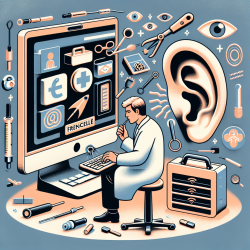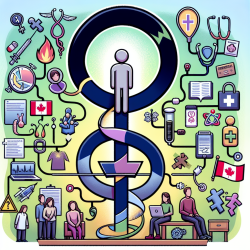As practitioners dedicated to enhancing the communication abilities of our clients, it's essential to continually refine our skills and stay informed about the latest tools and methodologies. The research article "Utilisation et satisfaction à l'égard des outils en français évaluant les troubles de la communication" by Garcia, Paradis, Sénécal, and Laroche offers invaluable insights into the use and satisfaction of French assessment tools for evaluating communication disorders. This blog aims to help you implement the outcomes of this research to improve your practice and encourage further exploration in this critical area.
Understanding the Research
The study conducted by the Groupe de recherche sur l'évaluation des troubles de la communication (GRETCOM) surveyed speech-language pathologists (S-LPs) and audiologists across Canada to determine the current use and satisfaction levels with French assessment tools. Out of 1,271 questionnaires sent, 284 responses were analyzed. The survey highlighted three key findings:
- Profiles of respondents, including their professional backgrounds and work environments.
- Perceived difficulties in using French assessment tools.
- Levels of satisfaction with the development and availability of these tools.
Key Takeaways for Practitioners
The research underscores several areas where practitioners can enhance their skills and improve client outcomes:
1. Emphasize Standardized Tools
Standardized evaluation tools are crucial for making precise and justifiable diagnoses. The study found that while S-LPs and audiologists use these tools primarily to establish a clinical impression, audiologists often use them to determine eligibility for services, and S-LPs use them to predict prognosis. To ensure accuracy, always opt for standardized tools whenever possible.
2. Address the Availability Gap
One of the significant challenges highlighted by the research is the lack of available French assessment tools. Practitioners expressed dissatisfaction with the availability and cultural relevance of these tools. To mitigate this, consider advocating for the development of more French-specific tools and collaborate with colleagues to share resources and best practices.
3. Utilize Psychometric Criteria
The study found that both S-LPs and audiologists frequently use standard deviations, school age equivalent ratings, and means. S-LPs also found percentile ranks and profiles useful. Familiarize yourself with these psychometric criteria to enhance the reliability and validity of your assessments.
4. Leverage Bilingual Capabilities
Given that many clients in Canada are bilingual, it's crucial to understand how bilingualism affects assessment outcomes. The research suggests that bilingual individuals may perform differently on French and English versions of the same test. Therefore, consider using tools developed simultaneously in both languages to ensure accuracy and cultural relevance.
Encouraging Further Research
While the study provides a solid foundation, it also highlights the need for ongoing research and development in this area. Practitioners are encouraged to participate in research initiatives, contribute to the development of new tools, and stay updated with the latest findings. By doing so, we can collectively improve the quality of care for our clients.
To read the original research paper, please follow this link: Utilisation et satisfaction à l'égard des outils en français évaluant les troubles de la communication.










